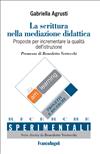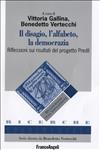
Reading a mathematical problem can be often challenging for students. To be successful, they need to understand the words, transposing their meaning on an abstract level, to identify the relations stated in the problem and the task requested. Even if the meaning of the words is known, the case can be given that the student cannot grab the global meaning, nor inferring useful implications to solve the problem. This article offers an overview on reading comprehension issues linked to mathematical texts, and then proposes a set of common mistakes made by young readers, emerged in a first exploratory field experience carried out with grade 7 students. Given that learning activities were carried out on the Pythagorean Theorem, specific attention was devoted to the transposition of words into geometrical figures.



